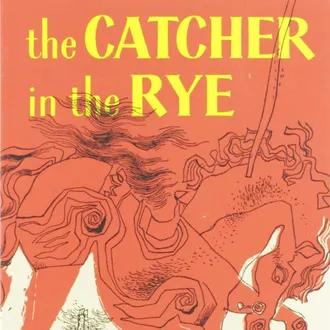In this 60th anniversary year of the quintessential New York teen angst novel Catcher in the Rye, Jesse Browner’s new novel Everything Happens Today not only updates Holden Caulfield, but – dare I say it – bests Salinger with a funnier, kinder and wiser novel.
It’s Tough to be Seventeen
It’s tough to be seventeen. It was tough in the 1950’s and it’s just as tough in the 2010’s. But Wes is a sensitive guy. For a year he has had his heart and mind set on losing his virginity to his sultry and aloof classmate Delia. She is a Buddhist and different from the other girls at The Dalton School.
“When you pictured some girls naked, it was all thrashing and grunting, but when you pictured Delia naked…you thought of waking up in a feather bed in an icy cottage on the moors with one of those strong, smooth, fragrant thighs splayed across your midsection.”
As it turns out, too many Bloody Marys and several flirty texts from the popular Lucy grab him by his dick instead of his heart, and his first lovemaking experience goes to the “thrashing and grunting” Lucy and not the “feather bed” Delia.
Wes walks all the way home to Greenwich Village from Lucy’s parent’s Upper East Side apartment in a state of “exhaustion, shame, hopelessness and loss…A teenager had no business feeling this way…this was a much older person’s kind of sadness, informed by regrets, nostalgia, a sense of half a lifetime’s squandered opportunities.”
Fixing Everyone Else’s Life
The iPhone-toting, Beatles lyrics-spouting Wes has lots of adult responsibilities. His mother is bed-ridden with advanced multiple sclerosis. It falls to him to fix her pudding and treat her bed sores. His thirteen year old sister Nora, however, is his pride and joy. He lives to protect and teach her. His father, a “failed novelist” professor who has moved into the garden apartment where he entertains his female students, brings Wes the most confusion and anger.
His father tries to connect – he even takes up Facebook thinking Wes will help him––”…you know, post my own pictures, find friends, join groups, that sort of thing.” But this is a non-starter: “Dad, I really don’t have time for this. Can’t you figure it out for yourself? Everybody else does.” His father pleads with him: “Can I friend you?” Wes pushes him away: “Parents and children cannot be friends.” Wes is saved by a phone call from a post-coital Lucy: “Wes had no desire to talk to her, but anything was better than helping his father make a total dick of himself on Facebook.”
As Wes grows in understanding and experience, he realizes that his father “has not changed at all but has always been like this, even in those days when it had seemed that he was perfect in every way.” What Wes remembers most about his father from those early days is how “his “eyes teared up whenever he heard ‘Brown-eyed Girl’ on the radio.”
Wes is a complex seventeen year-old, as much introspective and worried about who he is and how he appears to others as he is the social glue that keeps his mom alive and his sister curious. He is the family cook who quite literally keeps them all alive. When in a moment of nostalgic dementia for a honeymoon meal in Paris, his mother asks for a special meal of sweetbreads and bok choy, Wes takes up the challenge with the same rigor with which he churns out A+ English papers at school.
A food journalist (as much known for his work in Gastronomica andthe history of hospitality in The Duchess Who Wouldn’t Sit Down as for his previous three novels), Browner brings to this novel all the details about preparing sweetbreads as a comparable talent, Nicholson Baker, brings to shoelaces, sex, kitchen matches, and just about everything else.
A Day in The Life
In the tradition of Virginia Woolf’s Mrs. Dalloway or James Joyce’s Ulysses, Everything Happens Today takes place all in one day – a day in which the observant Wes notes “Everything had happened, and nothing had happened.”
He loses his virginity. He walks the crowded streets filled with what appear to be “tourists and daytrippers from the outer boroughs and suburbs because they walked too slowly and did not look intelligent enough to live in Greenwich Village.” He worries about an overdue English paper on War and Peace. And he broods about his helplessness in the world…as if you “allow tech support to take remote control of your laptop during a technical crisis, and suddenly some dude in Mumbai is moving the cursor across your monitor while your own keys go limp.”
Wes feels trapped by his family, his school, even his botched deflowering. But he is no Holden Caulfield. He works hard to do the right thing for his sister and his mother and even Lucy. He will not walk out on them. “He wished he could just be free to enjoy the moment, but he didn’t have it in him to pop a woody for new beginnings.”
Instead, he cooks a very competent sweetbread meal shared on his mom’s bed with his sister and retires to his room to get that English paper done. His life may be complicated (“It made War and Peace feel like The Runaway Bunny.”), but in Browner’s sympathetic hands, it is a life full of goodness and mercy.




